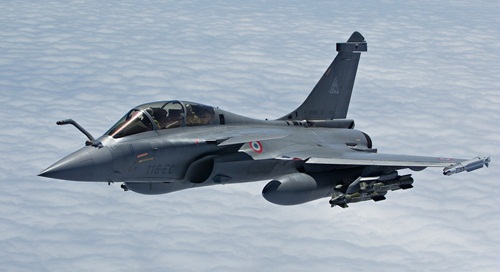Dassault Aviation has rejected allegations of 'conditionality' claims in the Rafale fighter jet deal with India as has been reported in `Mediapart’, a French investigative journal.
Dassault has categorically stated that there was no condition on the choice of offset partner for the deal and that it had freely chosen Reliance Defence as an offset partner and that there was no truth in the ‘condition’ claim made by the journal.
In a statement, the French aviation major said it had "freely chosen" India's Reliance Group for a partnership to set up joint venture Dassault Reliance Aerospace Ltd (DRAL) to manufacture parts for Rafale aircraft and Falcon 2000 business jets.
The defence major also said that the joint venture was specifically created to deliver the offsets committed to India and for servicing its Falcon 200 business jets.
Dassault further confirmed that "it has sold 36 Rafale aircraft to India within the framework of the September 2016 Inter-Government Agreement between France and India".
"In compliance with the Indian regulations (Defence Procurement Procedure) and as frequent with such a contract, Dassault Aviation has committed to offsets in India worth 50 percent of the value of the purchase", the release stated. "In order to deliver some of these offsets, Dassault Aviation decided to create a joint venture. Dassault Aviation has freely chosen to make a partnership with India's Reliance Group."
The Rafale jets were selected by the United Progressive Alliance through Medium Multi-Role Combat Aircraft (MMRCA) competition on 31 January 2012 due to its lower life-cycle cost.
In the beginning, India had planned to buy 18 off-the-shelf jets from France, with 108 others to be assembled in the country by the state-run aerospace and defence company Hindustan Aeronautics Limited (HAL). However, in 2015, Prime Minister Modi-led NDA government scrapped the deal signed during UPA’s tenure and announced that it would buy 36 "ready-to-fly" Rafale jets instead of seeking a technology transfer from France's Dassault Aviation and making the aircraft in India.
Dassault had refused to take responsibility for the 108 HAL-manufactured fighters, as it had ‘doubts’ about the ability of HAL to accommodate the manufacturing and technology transfers of the aircraft.



















